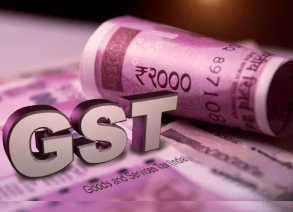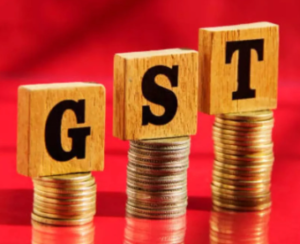URL
GST Council Meeting September 9: Rate rationalism and Tax Reforms in Focus
New Delhi, August 14, 2024 — The GST Council is set to convene on September 9, 2024, in New Delhi for its 54th meeting, where crucial discussions on rate rationalisation and tax reforms under the Goods and Services Tax (GST) regime are expected to dominate the agenda. This meeting is anticipated to bring significant changes to the GST structure, impacting businesses and consumers across the country.

Rate Rationalisation to Simplify GST Structure One of the primary topics on the table is rate rationalisation, which aims to streamline the existing GST tax slabs and address the inverted duty structure. Currently, the GST regime operates with four main tax slabs: 5%, 12%, 18%, and 28%. The Council will discuss potential changes, including the possibility of merging slabs or introducing a new slab between 12% and 18%, to simplify the tax system and reduce the burden on businesses. The Ministerial Committee on Rate Rationalisation, established by the GST Council in September 2021, will present its findings and progress. The committee, led by Bihar Deputy Chief Minister Sumant Chaudhary, submitted an interim report in June 2022, and further discussions are expected to focus on finalising recommendations. According to an official, “The unfinished agenda of rate rationalisation requires in-depth discussions within the ministerial committee. The Council may also consider setting a timeline for the submission of the final report.” Focus on Notices for Overseas Operations Another significant issue to be addressed is the ongoing concern regarding notices sent to companies for their overseas operations. Despite a clarificatory circular, companies continue to receive notices, leading to uncertainty in the business community. A recent partial reversal of a notice amounting to ₹3,898 crore sent to Infosys highlights the complexities involved in taxing overseas operations. This topic is expected to be a key focus in the upcoming meeting, as the Council seeks to provide clarity and consistency in its approach. Recap of Previous GST Council Meeting In the previous meeting held in June 2024, the GST Council made several important decisions, including tweaks to tax rates on specific items and measures to reduce litigation and simplify compliance for taxpayers. However, the broader goal of rate rationalisation remains unresolved, making the September 9 meeting a critical juncture for advancing these discussions. Expert Opinions on GST Rate Rationalisation Tax experts have emphasized the importance of considering the overall tax burden on consumers while reassessing GST slabs.

Saurabh Agarwal, Tax Partner at EY, stated, “Rate rationalisation is crucial for simplifying India’s GST regime. It’s essential to consider the impact on end consumers and prioritize sectors like new energy to drive down prices. Addressing classification ambiguities and conducting industry consultations will be vital for a smooth transition to any new rates.” Economic Impact of GST Reforms The outcomes of the September 9 GST Council meeting will have far-reaching implications for India’s economy. Potential changes to the GST structure could affect pricing, consumer spending, and inflation. Additionally, clarity on overseas operations and taxation is expected to provide much-needed relief to businesses operating globally.
As the GST Council prepares for this pivotal meeting, businesses, consumers, and policymakers alike are keenly awaiting the decisions that could reshape India’s tax land scape .policy holders and the insurance industry. Inverted Duty Structure and Its Implications The inverted duty structure, where the tax on inputs is higher than the tax on finished products, has been a persistent issue under the GST regime. This structure often leads to an accumulation of input tax credit (ITC) for businesses, causing cash flow issues and increasing the cost of compliance. The GST Council is expected to deliberate on corrective measures to address this issue, potentially including adjustments to tax rates or the introduction of refunds to balance the tax burden. Industry Expectations and Recommendations Various industry bodies have submitted recommendations to the GST Council ahead of the meeting.

These include calls for the rationalisation of tax rates in sectors such as textiles, footwear, and fast-moving consumer goods (FMCG), where the inverted duty structure has been particularly problematic. Additionally, there is advocacy for lowering tax rates on essential goods to reduce the overall tax burden on consumers, which could stimulate demand and boost economic growth. Historical Context of GST Rate Rationalisation Since the inception of GST in July 2017, the Council has periodically revisited tax rates to address anomalies and simplify the structure. The ongoing discussions on rate rationalisation are part of a broader effort to create a more efficient and business-friendly tax system.
The upcoming meeting could be a decisive moment in this process, with the potential to bring about significant reforms. Revenue Considerations and State Concerns Revenue neutrality has been a central concern in discussions on rate rationalisation. The states, which rely heavily on GST revenue for their budgets, have been cautious about any changes that could lead to revenue losses. The Council’s decisions will need to balance the goal of simplifying the tax structure with the need to maintain revenue stability for both the central and state governments. Impact on the Common Man For the average consumer, the outcome of the GST Council’s deliberations could mean changes in the prices of everyday goods and services. A rationalisation of tax rates could lead to lower prices for certain items, but it could also result in increased costs for others. The Council’s approach to balancing these effects will be closely watched by consumers and businesses alike. Looking Ahead The decisions made in the September 9 meeting could set the tone for future GST reforms, with implications for India’s economic trajectory. Businesses, tax professionals, and policymakers will be looking to the Council for clear guidance on the future direction of the GST regime
